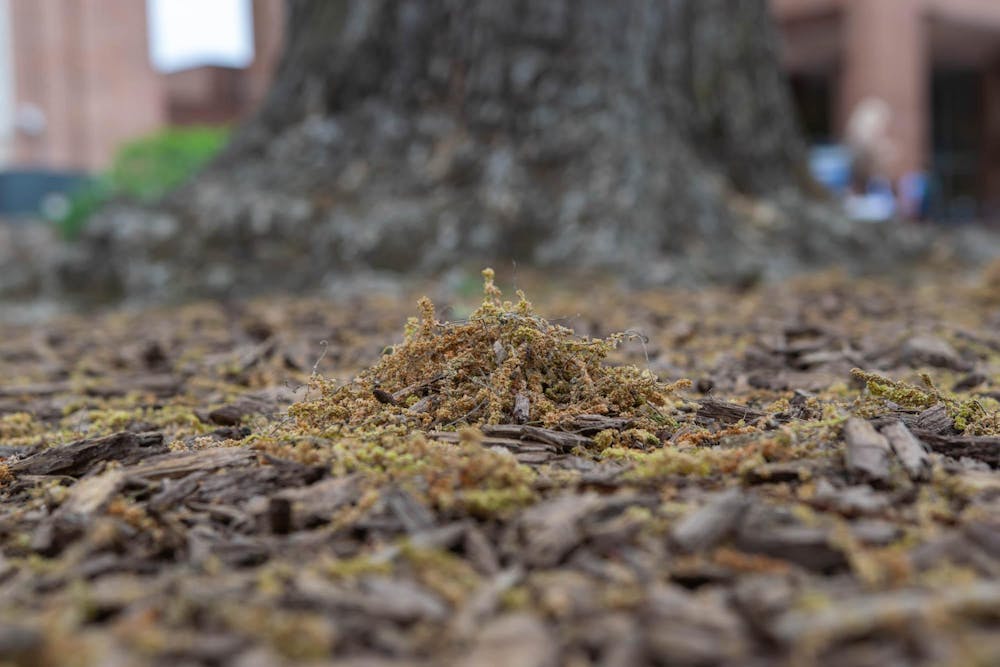Tree pollen in Raleigh reached record-high levels on April 1, according to the N.C. Division of Air Quality.
The NCDAQ’s pollen sampler recorded an estimated 16,284 tree pollen grains over the 24-hour period from 9 a.m. on March 31 to 9 a.m. on April 1, Shawn Taylor, the public information officer for the N.C. Department of Environmental Quality, said.
Monday's pollen count exceeded the previous record of 10,995 grains on April 6, 2010. A recorded 11,340 grains onWednesday currently holds the record for the second-highest recorded tree pollen count.
According to Taylor, the NCDAQ has operated its pollen sampler in Raleigh since 1999. The sampler is operated annually from February to October, although the exact start and end dates vary each year. NCDAQ technicians analyze the pollen collected each day under a microscope to produce the daily report.
NCDAQ pollen reports are divided into three types of pollen: grasses, trees and weeds. Each pollen count is then classified as “low,” “medium,” “high” or “very high” in severity.
The tree pollen counts for Monday and Wednesday were both classified as “very high” severity. No data is available for April 2, due to a sample collection error.
According to the Asthma and Allergy Foundation of America, pollen is a common allergen and can trigger symptoms such as runny nose, sneezing and watery eyes.
Pollen may also cause worsened symptoms for people with allergic asthma, a condition which causes asthma symptoms to be triggered by environmental allergens. Marginalized communities have higher rates of respiratory illnesses like asthma, meaning they may be disproportionately impacted by high pollen production.
AAFA recommends reducing allergic reactions to pollen by limiting outdoor activities, keeping windows closed and showering each day before going to bed.



